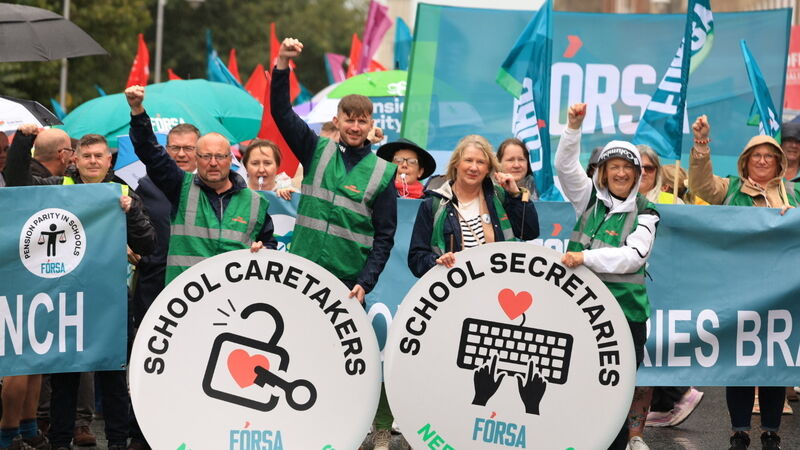Jennifer Horgan: Schools have second-class citizens in more ways than one

School secretaries and caretakers at a protest on Merrion Street in Dublin on Thursday morning. These people are public servants, deserving of our full support. Picture: Stephen Collins/ Collins Photos
Secretaries and caretakers are being treated like second-class citizens in our schools – that’s according to their trade union, Fórsa. It’s a citizenship that denies them access to public service pension schemes.
Are these 2,300 secretaries and 500 caretakers public servants? Speaking as someone who works in a school, I can tell you there was a secretary who made a child smile this week, helping them manage the transition to primary or secondary school. There was a secretary checking and rechecking attendance records, phoning parents, or guardians, ensuring young people were safe.















